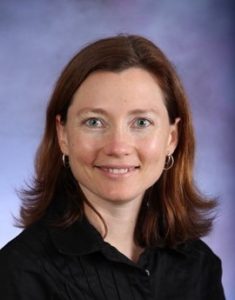
From HERC: In a dual career couple, both partners work or are searching for employment. For HERC’s purposes, at least one partner in a dual career couple works in higher education. To accompany HERC’s Dual Career Job Search, this Dual Career Blog Series supports dual career couples in planning, preparing for, and executing successful higher education job searches and career transitions that work for both individuals. HERC supports dual career couples as a matter of intersectional justice and gender equity.
From the author, Phyllis Brust, PhD: In the first blog, I gave an overview of dual career resources offered by colleges and universities. In this blog, we’ll discuss how you can make the most of those resources.
Institutions offer dual career services primarily to candidates they are recruiting for academic positions or for faculty members they are hoping to retain. Depending on the policies of the institution, administrative hires may be included. The key function of dual career services is to help accompanying partners in their job search. Some institutions also offer home-finding tips and other services, but for this blog, we will be sticking primarily to the job hunt.
The dual career specialist commonly meets with the accompanying partner or the couple during the campus interview or after an offer is made (this may depend on office policy). In the initial meeting (done in person, by phone, or via Skype), the dual career specialist may discuss the accompanying partner’s background, interests, and goals. (The accompanying partner may have completed an intake form prior to the meeting.) Together they will set a timeframe, strategy, and goals. Jobs may be the main interest, but the couple may ask for assistance in other areas such as housing and daycare.
Tips:
- Take an active approach to the assistance being offered and go into that meeting prepared. The lead partner has the most negotiating power with the prospective employer after the offer is made and before the lead partner accepts. What might be negotiable? Examples include salary for the lead partner and bridge funding and possible positions for the accompanying partner. Be assertive, but don’t be unrealistic.
- Before any meeting is scheduled, make a list of questions and resources you need to have a successful career/life transition. What questions do you and your partner need answered? What information might help you decide whether you should accept the offer? Is it a job, housing, your schooling, visas, schools for the kids, proximity to nature, doggie daycare, career counseling, networking contacts, or something else? Do you need guidance about academic positions at other institutions or perhaps advice about a career change? You may also need a babysitter, car service, or other logistical considerations during your visit. These questions are generally best asked of the chair of the search committee or chair of the hiring department. Dual career services will do what they can to help you accept the institution’s offer—they will not judge you. In one instance, an accompanying partner initially avoided my former office. She later told us she wasn’t ready to look for a new job and thought we might criticize her for it.
- Research the dual career services offered by the institution and at other employers. Institutions without a formalized dual career program may not have a dedicated website, but the search committee chair, department chair, or provost will be able to direct you. Review the policies of the dual career office, including the length of time they work with the client. It is commonly one year, but you will see a range. This time frame can be negotiated. One caveat: Website information may be out-of-date because of staffing changes, layoffs, and reorganizations.
- Don’t wait for someone to contact you. Email the contact on the dual career web page or ask the chair of either the search committee or hiring department. It’s fine to ask about the services offered (for example, you can say, “I’ve been on your web page and would like to see how you might be of assistance”).
- Do your legwork. Dual career assistance will complement your efforts. Research prospective employers and other areas of interest as well as contacts, says Dr. Mary Everley, the program director of the Relocation Assistance Program (RAP) at the University of Minnesota and director of the Upper Midwest HERC. If there is a regional HERC in your area, use the HERC job board to identify jobs from member institutions. Use LinkedIn to identify potential contacts; check if those contacts are alumni/ae of your alma mater(s) or of the hiring institution. If you are open about the search, ask current colleagues for contacts. The dual career specialist will be able to build on information that you provide. At the University of Minnesota, “the Relocation Assistant Program can then start to make contacts at some of those employers,” Everley says. The accompanying partner can ask to meet some of the contacts during the campus interview, as well as faculty families with whom you can speak. Use social media to learn about local neighborhoods. If you start the process early enough, the accompanying partner may be able to have meetings during the lead partner’s campus interview.
- Consider your timing. Conventional wisdom is to let the institution know dual career assistance is needed as soon as the lead and accompanying partners are comfortable doing so. That way, institutions can work on the issues as early as possible. Some candidates prefer to wait until after the offer is given, thinking there might be a bias against dual career academic couples. Institutions may also have guidelines pertaining to what stage an office can provide assistance. It is considered a best practice for academic hiring committees to present dual career resource information to all faculty candidates, regardless of their personal situations, with all contact with the dual career office remaining confidential.
- Ask the dual career office to check the accompanying partner’s hiring documents (resume, CV, cover letter, teaching statement, LinkedIn profile, etc.) for helpful feedback. If you are an accompanying partner and your interviewing skills are rusty, ask to practice interviewing for a job and/or informational interviewing (used in networking to explore prospective employers or careers). Such practice is especially important if you are unaccustomed to, or uncomfortable with, networking. You may also request to practice a job talk if you are on the academic market (if that resource exists).
- Check whether meetings are confidential.
- Be realistic. “Managing expectations,” is the motto of every dual career specialist I know. Specialists help you to find a position through contacts, support, networking, and other measures. They do not get you a job and they will be concerned if that is your expectation. Sometimes things don’t work out—the timing is off, the contacts unresponsive, the job market is weak, etc. As the University of Michigan’s dual career brochure notes, “University faculty and staff who assist in dual career efforts do a great deal to help partners in their job search. But the university cannot and does not guarantee job placement… Career searches are most successful when the partner takes a great deal of initiative.”
It can be difficult to negotiate and select a job offer. With an understanding of the process as well as of their own needs, couples can make the most of dual career services. As their job searches progress, they will get a feel for each campus, review and negotiate offers, and put the pieces together for two rewarding careers.
Disclaimer: Since dual career support varies widely from institution to institution, do your due diligence. The content and advice may not apply in your situation.
About the Author: Phyllis Brust, PhD, is a writer and career counselor. She was the first director of the dual-career office at the University of Chicago. Previously, she was career director of the public policy school at UChicago and Muhlenberg College and assistant director of the Yale School of Management. Her articles include “What I Learned from Being Laid Off” (Chronicle of Higher Education, 2018), “At Some Companies You Can’t Hire One Spouse Without Helping the Other Job Hunt” (SHRM.org, 2017), and a co-written chapter in Advancing Women in Academic STEM Fields Through Dual Career Policies and Practices (Information Age Publishing, 2018). She created careermutt.com for people looking for pet-related careers.






